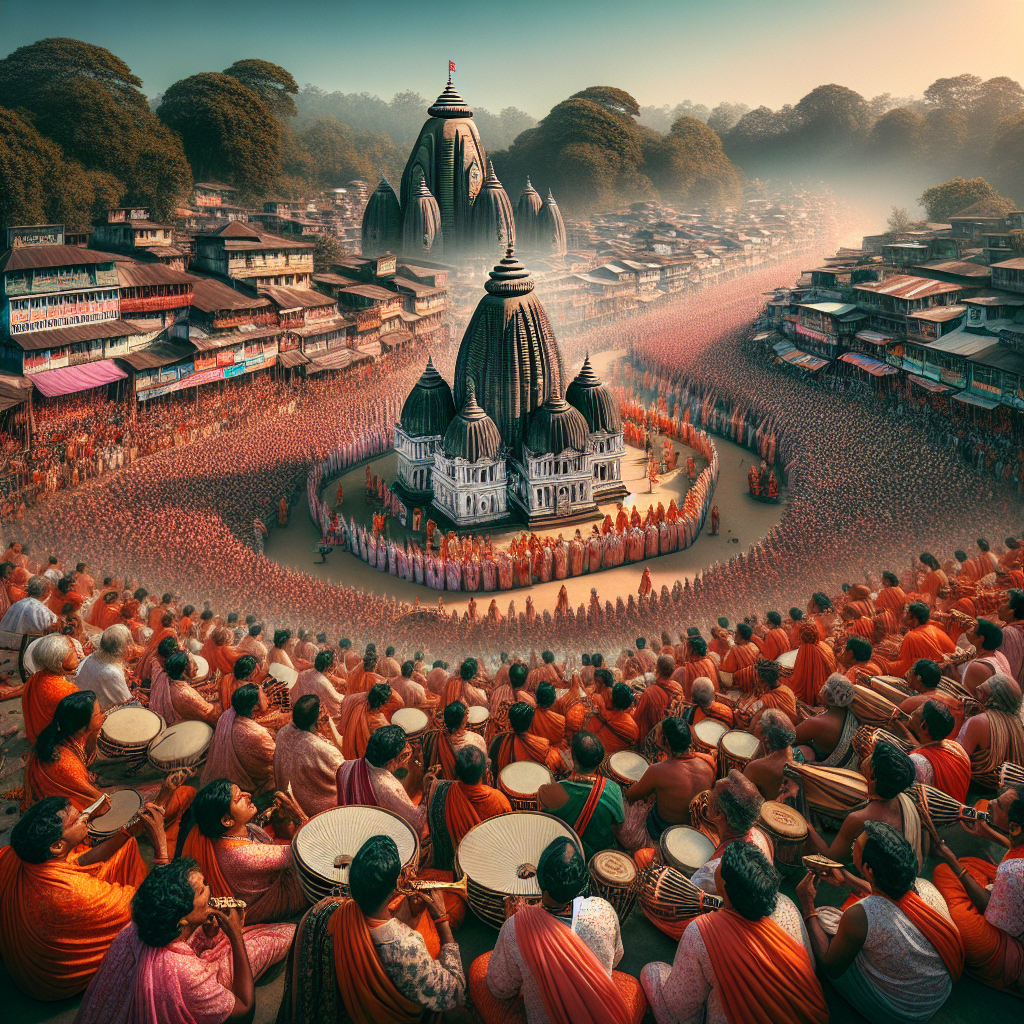Ambubachi Mela: Celebrating Tradition at Kamakhya Temple Amidst Strenuous Challenges
The annual Ambubachi Mela at Assam's Kamakhya Temple commenced, marking the goddess's ritualistic menstrual cycle. Worship is paused for four days as lakhs of devotees gather. Authorities ensure smooth operations with facilities and regulations for visitors, while Chief Minister Himanta Biswa Sarma welcomes attendees and provisions are made for essential services.

- Country:
- India
The annual Ambubachi Mela at Kamakhya Temple, perched atop the Nilachal hills in Guwahati, Assam, began on Saturday, aligning with the goddess's ritualistic annual menstrual cycle. Worship services have been suspended for the next four days.
Thousands of devotees have flocked to the temple, eagerly awaiting the resumption of worship and paying their respects to the deity. According to temple authorities, the doors were closed at 8:43 am, marking the start of 'prabritti'. Worship will resume at 9:07 pm on June 25, following the ritual of 'nribritti'. The temple doors will reopen for 'darshan' after a ritualistic bath and daily puja on June 26.
This significant event sees worship halted annually for four days, as it is believed the goddess undergoes her menstrual cycle. Devotees from across India and abroad converge on the temple premises to participate in this revered tradition.
Chief Minister Himanta Biswa Sarma, in a post on X in Hindi, extended a warm welcome to the attendees, stating, "On the occasion of Ambubachi Mela, I welcome the saints and devotees."
The Kamrup Metropolitan district administration and other agencies have arranged for smooth operations of the Mela. Camping facilities at the Kamakhya railway station can accommodate 5,000 persons, while provisions for 12,000-15,000 people have been made at the main holding area in Pandu port.
Authorities have temporarily halted the issuance of VIP passes and restricted vehicle access to the main temple road, permitting only emergency and utility vehicles.
Institutions distributing food and water to visitors face strict regulations, with no arbitrary distribution allowed. Additional provisions include toilets, street lighting, health camps, and barricades at certain road locations.
(This story has not been edited by Devdiscourse staff and is auto-generated from a syndicated feed.)
ALSO READ
PM Modi Inaugurates Guwahati Airport Terminal, Launches New Era for Assam
Assam Rises as New Gateway: PM Modi Inaugurates New Air Terminal in Guwahati
Assam Doubles Land for Sri Venkateswara Temple in Guwahati
PM pays tribute to martyrs of Assam Agitation at 'Swahid Smarak Kshetra' in Guwahati.
Nature Meets Aviation: The Grand Opening of Guwahati's Eco-Terminal










